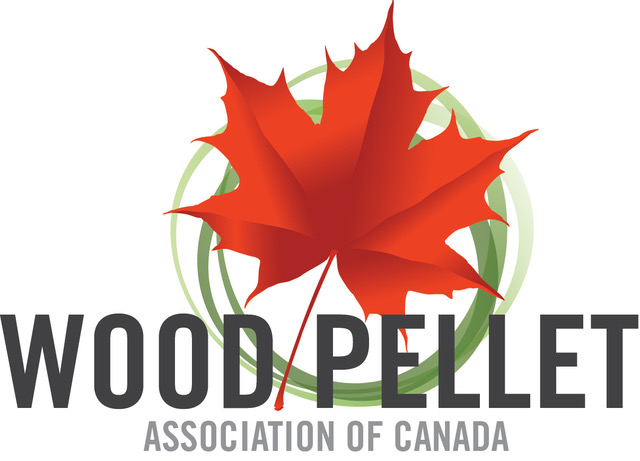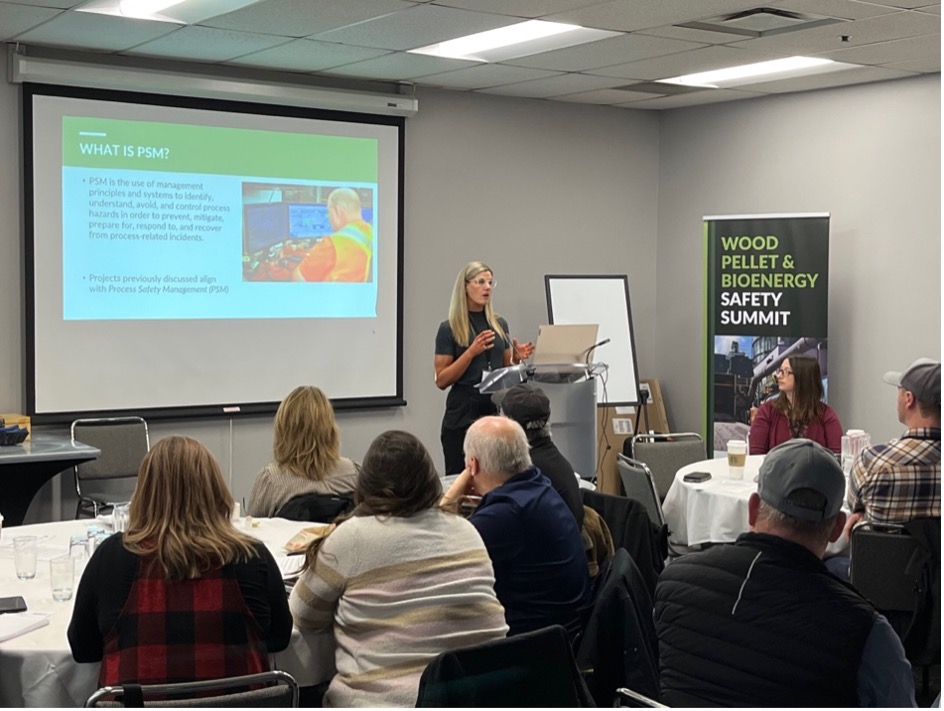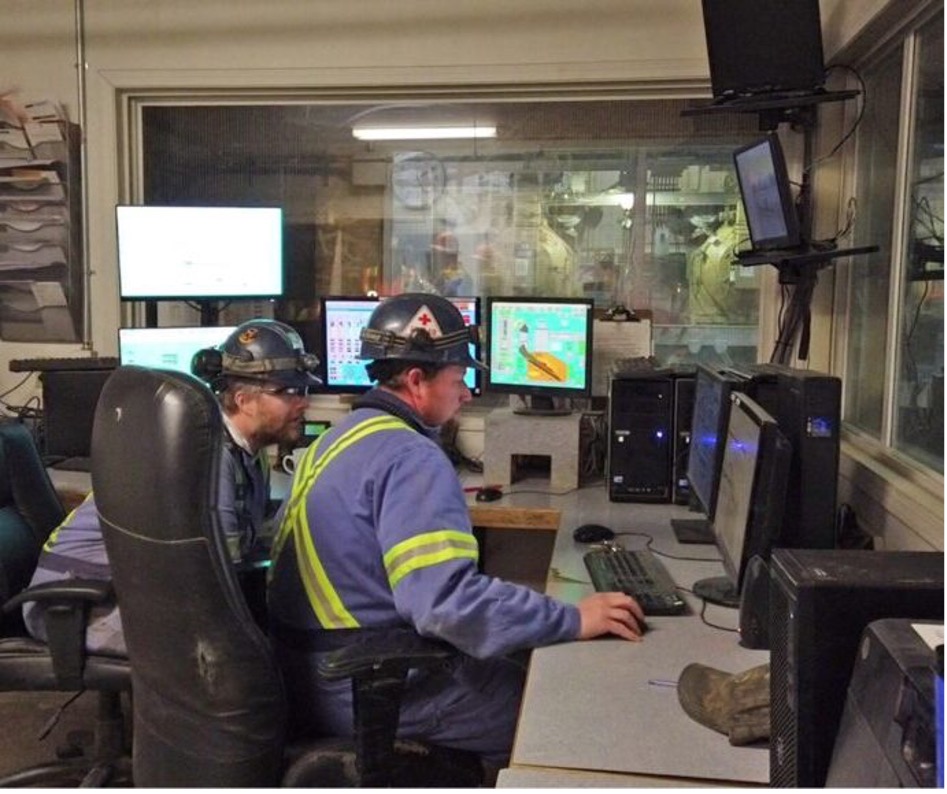
In 2022, the Wood Pellet Association of Canada (WPAC) and its members released a 10-point commitment to building a better world; chief among them was treating forest sector workers fairly, with the highest priority placed on their health and safety. We believe that safety and respect go hand-in-hand.
Every day, WPAC members and their employees work tirelessly to ensure leading safety practices are implemented and embraced. We know we will be measured by our collective efforts as an industry. Our reputation and the trust of regulators, the general public and the families of our employees depend on this.
 In 2014, we established the WPAC safety committee as a forum for industry participants to share knowledge and to work collectively on solving common safety concerns such as combustible dust management, safe-guarding, working in confined spaces and lock-out procedures. This has resulted in a near elimination of safety incidents, increased worker protection, and an ever-improving relationship with regulators. BC Forest Safety Council’s ongoing participation in and support of our safety initiatives have been integral to WPAC’s success. It’s a positive and productive relationship that underpins our sector’s global reputation on safety.
In 2014, we established the WPAC safety committee as a forum for industry participants to share knowledge and to work collectively on solving common safety concerns such as combustible dust management, safe-guarding, working in confined spaces and lock-out procedures. This has resulted in a near elimination of safety incidents, increased worker protection, and an ever-improving relationship with regulators. BC Forest Safety Council’s ongoing participation in and support of our safety initiatives have been integral to WPAC’s success. It’s a positive and productive relationship that underpins our sector’s global reputation on safety.
WPAC’s Safety Committee has anchored its vision in a yearly work plan that holds the association accountable to searching out new technologies and research to support a safer culture, communicating best practices and safety news, and collaborating across the country on all safety matters. We meet monthly to discuss priorities, developments and initiatives.
Working together with the BC Forest Safety Council (BCFSC), we have launched an industry-wide initiative to deliver a free, comprehensive, digital e-learning safety training program for plant operators and supervisors. It focuses on combustible dust, human factors, hazard analysis, process safety management, upset conditions and plant operation.
We also launched a Safety Hero Award that recognizes individuals who are making their facilities safer and keeping their employees and coworkers safe. These heroes, nominated by their peers, are recognized every two months in an article and receive a small token of appreciation.
The evolution from managing personal health and safety to focussing on process safety management represents a shift towards a more comprehensive approach to ensuring workplace safety. In our early days, we emphasized individual behaviors and protective measures to prevent accidents and injuries. Though these measures are crucial and remain important components of safety management, they primarily address the immediate risks faced by individuals in their day-to-day activities. However, it has become increasingly evident that ensuring safety goes beyond just addressing individual behaviors.
We’ve teamed up with safety experts and research institutions to explore some of the underlying drivers of safety risks in our sector and developing new tools to improve safety.
Around the world, process safety management (PSM) is becoming central to worker safety and managing risk. PSM implementation protects personnel, equipment, and production uptime, and is associated with lower maintenance cost, insurance, and capital. We are working toward implementing PSM through a strategic long-term plan, using the CSA Z767 Process Safety Management standard as the framework. It is anticipated the initiative will be a core focus of the WPAC safety committee workplan for the next 5-7 years.
More recently, together with our partners, BCFSC and Obex Risk, we are looking at integrating process safety management (PSM) into pellet plants that generate combustible wood dust. The work on PSM builds on our previous work within the Critical Control Management initiative that has been wholeheartedly embraced across pellet plants in B.C.
In conjunction with BCFSC, Dalhousie University and Obex Risk we undertook a study to examine deflagration isolation on an initiative to improve pellet industry practices, regarding equipment isolation.
In cooperation with the BCFSC, WorkSafeBC and media partner Canadian Biomass, WPAC held the Rotary Drum Dryer Safety Symposium to hear from producers and subject matter experts on their learnings and experiences, the current state, and new approaches to drum dryer safety.
We held a safety workshop in Ottawa that provided greater clarity and input on those initiatives, and in November 2023 more than 50 participants—from wood pellet producers, operators, suppliers, and regulators—from across Canada met in Prince George, B.C. to discuss evolving trends and regulatory topics.
We’ve also made safety a key part of our outreach in Japan this year. In partnership with FutureMetrics, we hosted a workshop to address the risks of silo fires. The workshop was held in Tokyo and was sold out, and due to demand, we are hosting a second one in May.
Overall, the commitment to safety in the wood pellet sector is multifaceted and ingrained into the culture of responsible production. It encompasses regulatory compliance, adherence to industry standards, employee training, risk management, continuous improvement, and community engagement. You can download our annual safety workplan and read more about our safety initiatives at pellet.org/safety/
WPAC’s safety committee works in close cooperation with WorkSafeBC and the BCFSC. The committee always welcome new members. If you are interested, please contact Fahimeh Yazdan Panah (fahimeh@pellet.org).

Participants at WPAC’s Wood Pellet and Bioenergy Safety Summit Report explored signals of weak safety cultures and actions that could be taken to improve safety culture. Photo: WPAC.

Caption: WPAC and BCFSC hosted two free workshops on Human and Organizational Performance for Critical Controls to explore the human factor approach used to understand why process safety incidents occur and how they can be prevented. Photo: WPAC
___________
Fahimeh Yazdan Panah, PhD, PMP, P.Eng, is the Director of Research and Technical Development with the Wood Pellet Association of Canada.